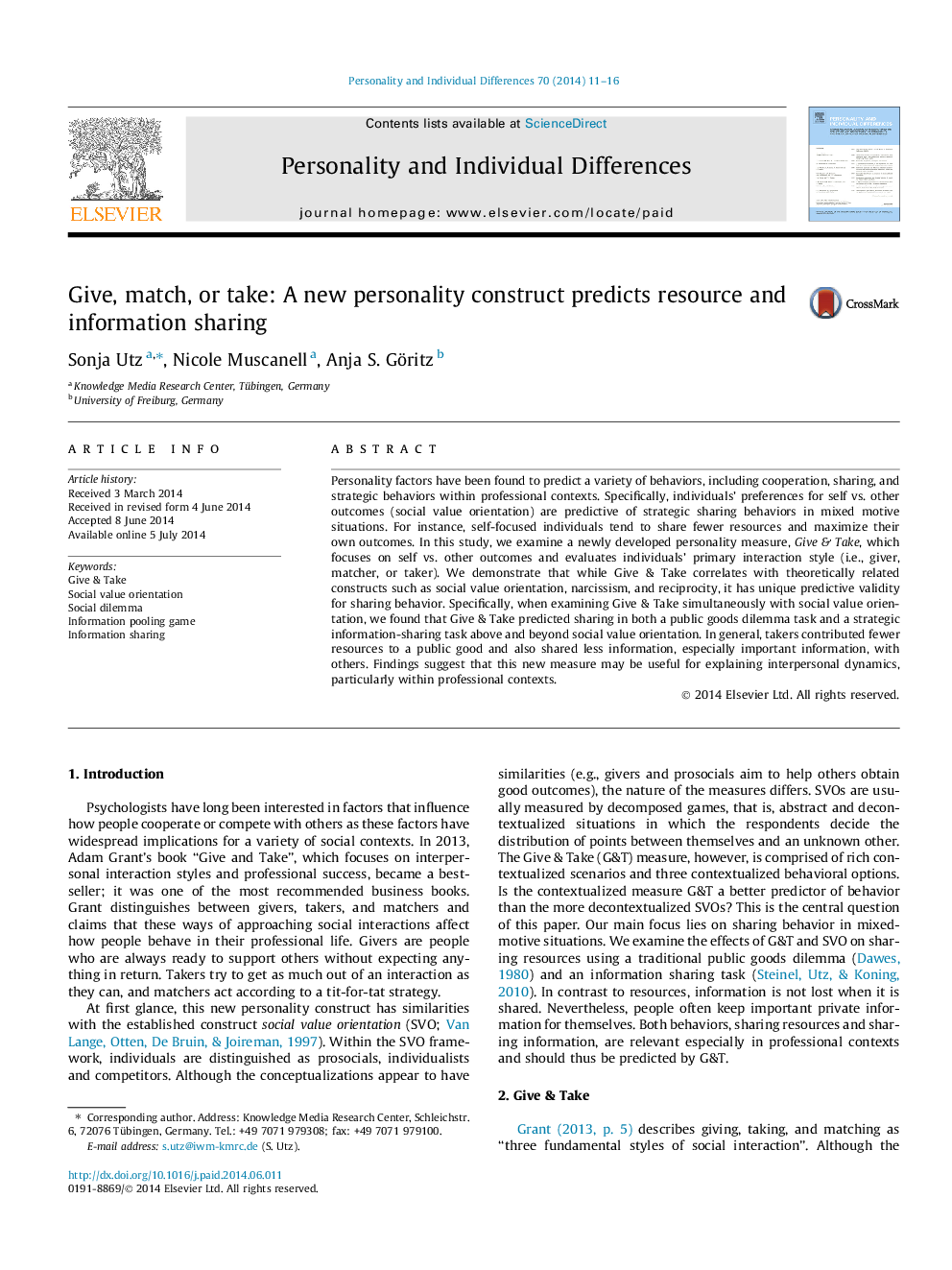| کد مقاله | کد نشریه | سال انتشار | مقاله انگلیسی | نسخه تمام متن |
|---|---|---|---|---|
| 890306 | 1472048 | 2014 | 6 صفحه PDF | دانلود رایگان |
• We tested the newly developed Give & Take (G&T) measure (Grant, 2013).
• G&T predicted contributions to a public good dilemma.
• G&T was a better predictor of information sharing than social value orientation.
• Despite small effects, G&T might be especially useful in professional contexts.
Personality factors have been found to predict a variety of behaviors, including cooperation, sharing, and strategic behaviors within professional contexts. Specifically, individuals’ preferences for self vs. other outcomes (social value orientation) are predictive of strategic sharing behaviors in mixed motive situations. For instance, self-focused individuals tend to share fewer resources and maximize their own outcomes. In this study, we examine a newly developed personality measure, Give & Take, which focuses on self vs. other outcomes and evaluates individuals’ primary interaction style (i.e., giver, matcher, or taker). We demonstrate that while Give & Take correlates with theoretically related constructs such as social value orientation, narcissism, and reciprocity, it has unique predictive validity for sharing behavior. Specifically, when examining Give & Take simultaneously with social value orientation, we found that Give & Take predicted sharing in both a public goods dilemma task and a strategic information-sharing task above and beyond social value orientation. In general, takers contributed fewer resources to a public good and also shared less information, especially important information, with others. Findings suggest that this new measure may be useful for explaining interpersonal dynamics, particularly within professional contexts.
Journal: Personality and Individual Differences - Volume 70, November 2014, Pages 11–16
